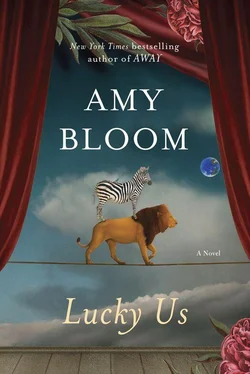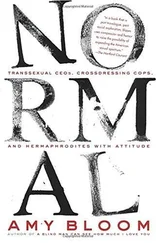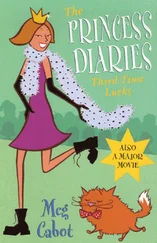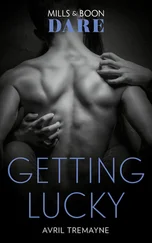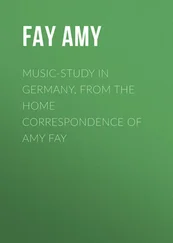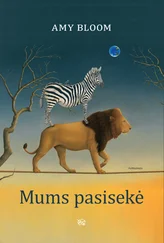The ladies liked that I was an innocent vessel. I described whatever salacious goings-on seemed called for, as if I barely understood what the cards were showing me. The ladies liked that the cards and I seemed to be on their side. After a week of the Russos, and more Russo cousins, I had clients every day. I advised that a miserable, no-good bitch of a daughter (about whom I’d been hearing for six months, from her aunt) should not be given a loan, according to the Justice card, and might come to no good end, according to the Six of Swords, which had a sad woman and child in a canoe, floating away from a dock. Mrs. Sorita should not go to Atlantic City with an old beau from high school, not even just for fun (Three of Pentacles, faintly disapproving). Mrs. Benjamin should let her daughter take night classes and Jeannie could start out local, before she applied to Brooklyn College (Ace of Wands, heigh-ho for education). No one who sat at my table was encouraged to have a fling, to leave the country, to go in or go out of this world like gangbusters.
Suddenly, I had money. I opened a bank account across the street from the shop. I hadn’t had a dime of my own that I hadn’t stolen, since we’d left Ohio. My father paid for his own immaculate self and for evenings out with Clara. Iris paid for herself and helped Reenie, who’d never been paid much, now that Reenie was single. I’d been wearing Iris’s hand-me-downs for four years, badly, and had hardly noticed. Now I bought college-girl clothes and did my hair the way college girls did and I stuffed my bra. I had two pairs of new shoes. The pain in my chest, which I had had since the day I was left on the front porch, eased up. It wasn’t grief. It was being broke and badly dressed, and now I wasn’t.
10 Bei Mir Bist Du Schoen
Letter from Iris
Upper Richmond Road
Putney, London
April 1947
Dear Eva,
Pride of Israel orphanage. You knew your way around that place like you lived there. You were my tour guide. You must have timed our visit for the baseball game and the boy you had a crush on. (You kept your glasses off and your chest out until the baseball players were called inside.) Then the little ones came out. We stood there like people at a museum, admiring, assessing the different children. There weren’t that many different kinds, were there? Skinny, dark-haired, dark-eyed, beaky boys, the occasional little blimp with fat wrists and knees and a wary look, a few blondes. I had said that I would like a baby, but there were clearly no babies to be had, or if the orphanage did have babies, they kept them properly stored inside.
I know you understood that I needed a child for Reenie. I must have told you a million times how much she wanted a baby, how sad it was for her that now that Gus was gone, she’d probably never have one. She told me, and I told you. She looked into adoption and discovered that the adoption agencies would give a pair of married monsters triplets before they’d give one baby to a single woman. You ventured once that Reenie might meet someone else, a man that she could have a baby with, but I squelched that. I’m sorry. I had no business making you snatch that little boy (I can see it now, that awful pile of bricks and Stars of David discreetly carved into the cornices — proudly Jewish but not too Jewish, just in case).
I don’t have much confidence in what people remember. It seems to me, I remember some things at a gallop, some moments from Ohio bearing down upon me in huge detail, and other things are no more than small leaves floating on a stream. Memory seems as faulty, as misunderstood and misguided, as every other thought or spasm that passes through us. I know I wasn’t so much younger then that I can use youth as an excuse; let’s just say that I still thought I was made to triumph. That I was, in fact, owed a triumph. I planned to give Reenie a little boy, the way a rich man buys his wife a Cadillac. I thought she would love me even more for my unexpected, staggering generosity. And because Danny was a child, and not a car, we’d be like the Nelson family, except we would be Harriet and Harriet and Danny, and Danny would be exceptionally well behaved.
How was I to know? I was raised by a completely normal, lovely mother, with hot breakfasts and sudsy baths and walks to the library, and she died just as I was turning awful, shrieking about my spots and my hair and getting my monthlies — I remember you getting yours. You were fourteen. It was just before everything went bad in Hollywood. You, being you, had read up on menstruation in my Margaret Sanger book. You just sat on the toilet until I got home and then you gave me your list of sundries, on the back of an envelope. You must have been sitting there for hours. When I got back with the goods, both your legs had fallen asleep and I had to hold you up. I strapped in that enormous pink slab of a sanitary napkin, I assured you that you could get pregnant but that did not mean you had to have anything to do with boys if you didn’t want to, and I threw your soiled pants into the trash can behind the apartments.
What I want you to remember is that I cared for you. I want you to see that between my nice mother, who had a maid and two sets of china and a life history of ease and no consequence, and our blithe, inscrutable, crooked father — I had no way of knowing what was required.
You saw Danny before I did. I don’t know what caught your eye. I should have had stronger feelings, I suppose. My heart should have filled with love, knowing that this was the exact little boy (you said he was four or five, I had no idea) we were meant to have, but it didn’t. I felt the way one might if one were asked to choose among pearl bracelets of rather poor quality, when one has no interest in pearls and never has. We visited three more times and every time, we looked for Danny and smiled and waved and we pulled a bit more at the hole in the wire fence, until a child could crawl through it. You found some scrap lumber that we laid up against the hole, so no one would see. I don’t know why we thought anyone would stop him, or us — those children were all at the orphanage because no one wanted them.
Do you remember what Danny said when he started talking to us? He told us that his mother had fallen off a roof and his father was so sad, he had to bring Danny and his brother to the home. We did look at the other boys, but you had your heart set on Danny. You said he seemed nice and smart. You were right, but I certainly saw no evidence of that at the time. What he seemed to me was undersize, possibly nearsighted, and pitiful. When we got his attention and I finally put out my hand to him at the hole in the fence, he just stared at his shoes. I have to tell you, I worried that he was slow and that we should have found a smarter child, but you put the candies right in my hand to encourage him and he toddled over, like a badger coming for his snack. There’s a hotel in the north I’ve been to a couple of times (married lady, Scots, and very keen … for about two months) and at teatime, they put out a huge dish of milk and chunks of bread around it and the badgers come around and dip, like matrons at the Connaught. I watched them every day.
Had we gotten a car? Did we bring him home on the subway? That seems impossible but I know we didn’t have a car (our father was so strict about not borrowing the Torellis’ car for our personal business; that must have been the only ethical fence he wouldn’t jump). I think I carried Danny in, wrapped in a red-and-white blanket. (No one can say we didn’t plan ahead. Why, we had a sack of candy and a blanket.) Danny hadn’t cried at all when we pulled him through the opening. He just looked behind him, wiped his dirty little nose, and took my hand. He did look a little the worse for wear in our bathroom, eyes rolling around and his heart beating so fast in his chest that I could see it. Reenie washed his face and hands with a warm cloth (she was afraid that he’d never had a bath and all that water would scare him) and made him a cup of milky tea and we put him in our bed. The sight of Reenie, with the little boy’s head on her breast, her hand smoothing his hair, holding the cup for him and singing some Italian lullaby, was all that I wanted. That, and her beautiful smile when he fell asleep. She did ask me where we had found him and I told her the thinnest lie, that a neighbor of the Diegos had abandoned their child to return to Mexico and no one knew what to do with him. Reenie seemed a little surprised that he was Mexican; he didn’t look Mexican, she said, but in the end, she saw only his sweet face and big eyes and his stubby hand gripping her skirt, and if I had told her he was Robert of Scotland, she’d have believed that too. I must have thought that Reenie’s Catholic heart would seize up at the thought of his being stolen and she’d make us take him back. I had told her once that she could have a baby with Francisco and we’d raise it, but she wouldn’t hear of it.
Читать дальше
